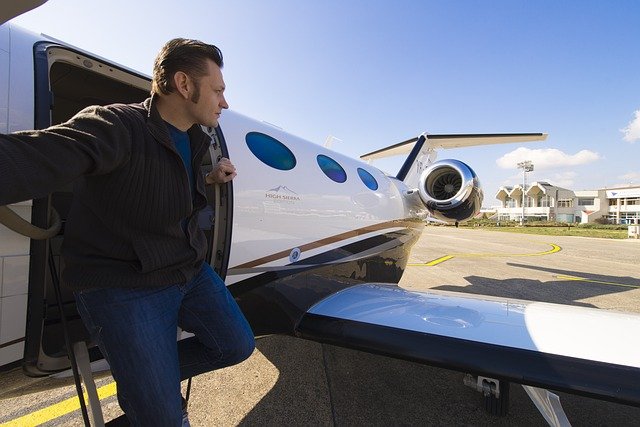What to Know About Career Paths as a Private Jet Attendant
The world of private aviation offers more than just travel—it introduces unique roles that blend hospitality, discretion, and high-level service. This guide explores how individuals pursue careers as private jet attendants, including what qualifications are often expected, the work environments they encounter, and the type of clientele typically served. Discover insights into what this path involves, from skill development to where people search for opportunities.

What qualifications are needed for private jet jobs?
To become a private jet attendant, you’ll need a combination of education, experience, and personal qualities. Most employers require at least a high school diploma, though many prefer candidates with a bachelor’s degree in hospitality, tourism, or a related field. Fluency in multiple languages is often a significant advantage, as private jet clients frequently travel internationally.
In addition to formal education, candidates should possess excellent communication skills, a professional demeanor, and the ability to remain calm under pressure. Physical requirements often include the ability to lift heavy items, stand for extended periods, and meet specific height and weight standards to navigate the confined spaces of private aircraft cabins.
How does VIP flight attendant training differ from commercial?
VIP flight attendant training goes beyond the standard safety and service protocols taught in commercial aviation. Private jet attendants must undergo specialized training that focuses on the unique aspects of luxury travel and catering to high-net-worth individuals. This training often includes:
-
Advanced safety and emergency procedures specific to private aircraft
-
Gourmet food preparation and wine pairing
-
Etiquette and cultural sensitivity for international clientele
-
Confidentiality and discretion protocols
-
Personalized service techniques and anticipatory customer care
Many aspiring private jet attendants opt for specialized VIP flight attendant training programs offered by dedicated aviation academies. These programs provide comprehensive instruction in all aspects of private aviation service, often including hands-on experience in simulated private jet environments.
What are the current trends in cabin crew recruitment?
The cabin crew recruitment landscape for private jet operations is evolving, with several trends shaping the industry:
-
Increased demand for multilingual candidates
-
Growing emphasis on technological proficiency
-
Rising importance of soft skills such as adaptability and problem-solving
-
Preference for candidates with luxury hospitality experience
-
Focus on health and wellness knowledge to cater to health-conscious travelers
Recruiters are also looking for candidates who can offer a more holistic travel experience, capable of acting as concierges, personal assistants, and even sommelier when required. This multifaceted approach to recruitment reflects the changing expectations of private jet clientele.
How do luxury travel careers compare to traditional flight attendant roles?
Luxury travel careers, particularly in private aviation, offer distinct advantages and challenges compared to traditional flight attendant roles:
| Aspect | Private Jet Attendant | Commercial Flight Attendant |
|---|---|---|
| Salary | Generally higher | Standard industry rates |
| Work Schedule | Often on-call, less predictable | More structured, regular routes |
| Client Interaction | Personalized, high-touch service | Standardized service for many passengers |
| Travel Perks | Exclusive destinations, luxury accommodations | Broader range of destinations, standard accommodations |
| Career Growth | Networking opportunities with high-profile clients | Clear path for advancement within airline hierarchy |
Prices, rates, or cost estimates mentioned in this article are based on the latest available information but may change over time. Independent research is advised before making financial decisions.
What are the typical career progression paths in private aviation?
Career progression in private aviation can take several paths, depending on your interests and strengths:
-
Senior Flight Attendant: With experience, you may lead cabin crews on larger private jets.
-
Corporate Flight Attendant Manager: Oversee flight attendant teams for corporate flight departments.
-
Private Aviation Consultant: Advise on luxury travel services and private jet operations.
-
VIP Flight Attendant Trainer: Train new recruits in the art of luxury air travel service.
-
Charter Sales or Management: Transition into the business side of private aviation.
Advancement often comes with increased responsibilities, higher pay, and the opportunity to work with even more exclusive clientele or on larger, more luxurious aircraft.
As the private aviation industry continues to grow, opportunities for skilled and dedicated professionals expand. A career as a private jet attendant offers not just a job, but a lifestyle that combines the excitement of travel with the satisfaction of providing unparalleled service. By understanding the qualifications needed, pursuing specialized training, and staying attuned to industry trends, you can position yourself for a rewarding career in this exclusive sector of the aviation industry.




